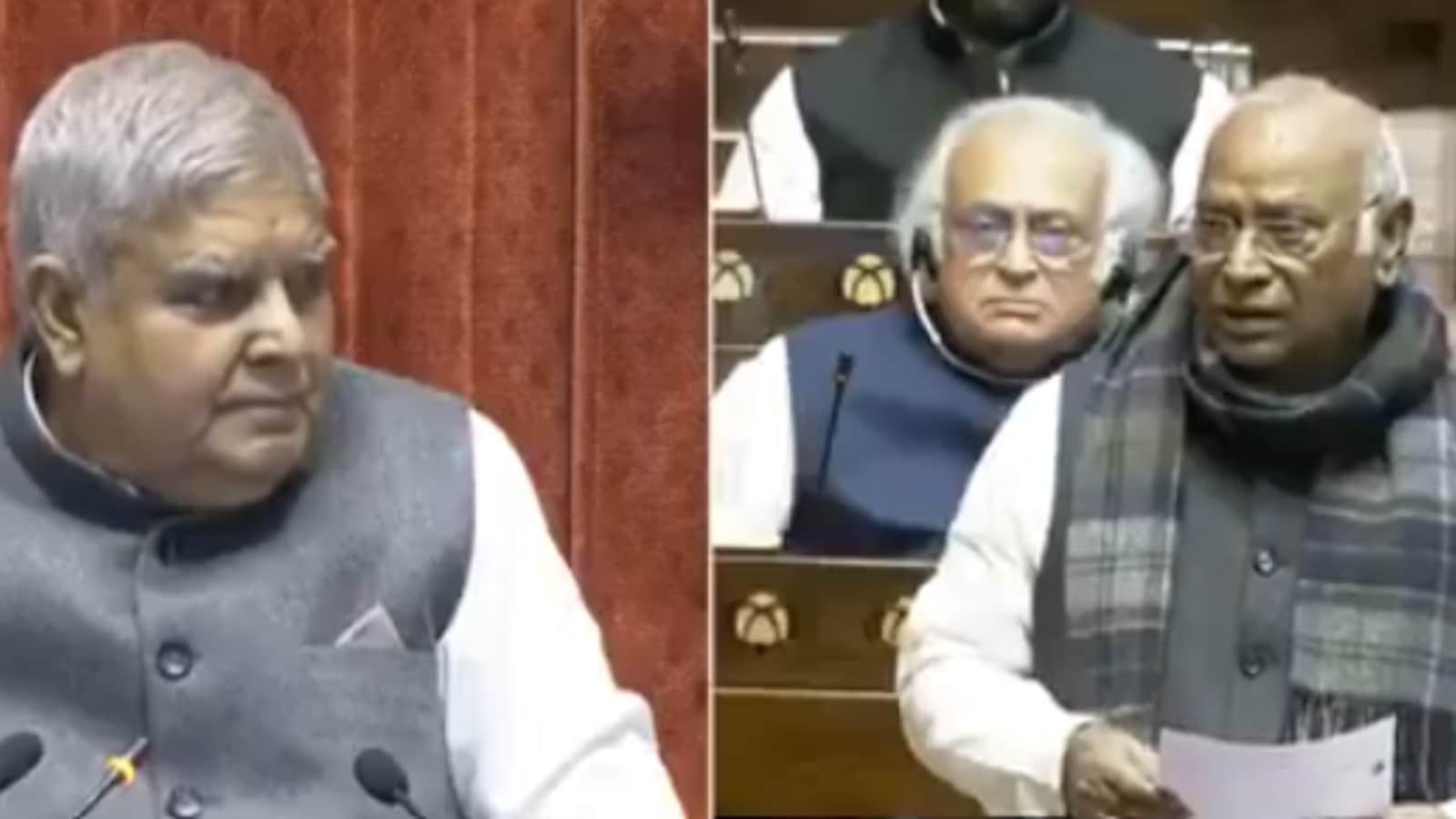 |
|
The Indian Parliament witnessed significant disruptions on Thursday, stemming from the tabling of the Joint Parliamentary Committee (JPC) report on the Waqf (Amendment) Bill. The Opposition parties vehemently protested, alleging that dissenting opinions had been deliberately removed from the final report, a charge the government strongly refuted. This ignited a heated debate that paralyzed both the Rajya Sabha and Lok Sabha, highlighting deep divisions within the Indian political landscape regarding the controversial legislation and its implications for religious minority communities. The scene in the Rajya Sabha was particularly tumultuous. The moment BJP MP Medha Vishram Kulkarni presented the report, uproar erupted, leading to a temporary suspension of proceedings. Leader of the Opposition Mallikarjun Kharge immediately leveled accusations against the government, asserting that crucial dissenting voices had been systematically expunged from the document. He labeled the report 'farzi' (fake) and condemned the action as anti-democratic, urging the Vice President and Rajya Sabha Chairman, Jagdeep Dhankhar, to reject the report and demand a revised version incorporating the omitted viewpoints.
Kharge's accusations triggered a furious response from the treasury benches. Vice President Dhankhar, visibly irritated by the escalating disorder, rebuked the protesting MPs, admonishing them for their behavior and demanding adherence to parliamentary decorum. The Opposition, however, remained steadfast in its condemnation. DMK leader Tiruchi Siva and AAP's Sanjay Singh joined Kharge in echoing the allegations of dissent suppression, further intensifying the conflict. The government's response was swift and forceful. Leader of the House J P Nadda issued a condemnation of the Opposition's actions, and Union Minister Kiren Rijiju categorically dismissed the claims as 'false and misleading.' Rijiju insisted that the report accurately represented the discussions and amendments made during the JPC's deliberations. This denial only fueled the Opposition's anger, prompting further disruptions. The Vice President, after repeated denials by Minister Rijiju, stated that he found the accusations of omission to be factually baseless and untruthful. He called for an end to the disruptive tactics employed by the Opposition.
The escalating tensions reached a fever pitch, with both sides engaging in a fierce verbal battle. Finance Minister Nirmala Sitharaman joined the government's defense, accusing the Opposition of deliberately attempting to obstruct parliamentary proceedings and sow confusion. Following this intense exchange, the Opposition MPs staged a walkout, leaving the Rajya Sabha to resume its Question Hour. The scene in the Lok Sabha was equally chaotic. As the Chairman, Jagdambika Pal, tabled the report, Congress, Trinamool Congress, and Samajwadi Party MPs surged towards the Well of the House, shouting slogans against the government. Prominent figures like AIMIM MP Asaduddin Owaisi and Independent MP Abdul Rashid Sheikh participated in the protests. Home Minister Amit Shah acknowledged that some Opposition members had voiced concerns about the inclusion of their dissenting views, stating that the government had no objections to their inclusion. Lok Sabha Speaker Om Birla intervened, indicating that some issues raised by committee members had been addressed in annexures to the report. However, despite these clarifications, the Opposition staged another walkout, briefly disrupting the proceedings.
The controversy surrounding the Waqf (Amendment) Bill and the JPC report underscores deep-seated concerns about religious freedom and minority rights in India. The Opposition's persistent allegations of dissent suppression raise serious questions about the transparency and fairness of the legislative process. The heated exchanges in both Houses of Parliament reveal the intense polarization of Indian politics, where even relatively procedural matters can escalate into major confrontations. The government's vehement denials, coupled with the Opposition's determined protests, suggest that this issue is likely to remain a point of contention for the foreseeable future. The actions of the MPs, particularly the walkouts and disruptions, raise questions about the effectiveness of parliamentary debate and the ability of the legislature to address contentious issues in a constructive manner. This event serves as a stark reminder of the challenges facing Indian democracy and the vital need for dialogue and compromise in resolving deeply divisive political issues.
